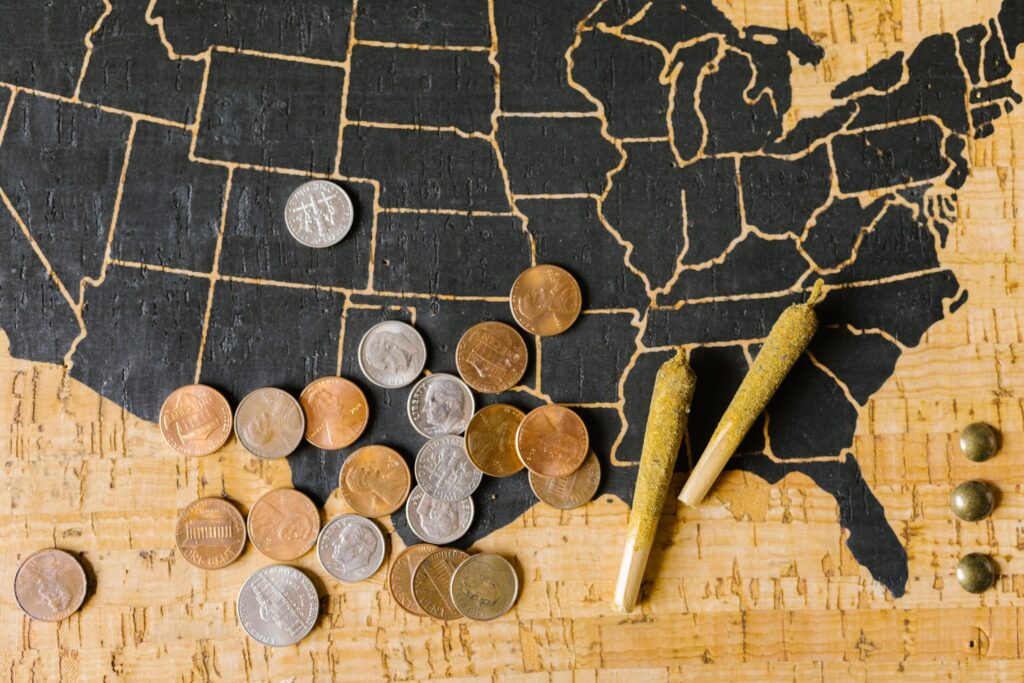In the heart of Texas, where entrepreneurial spirit thrives, a storm is brewing that could uproot a burgeoning industry. Since the 2018 U.S. Farm Bill legalized hemp, Texas has seen an explosion of businesses centered around Hemp Derived THC products, from gummies to vapes, sold legally under the 0.3% delta-9 THC threshold. The 2019 Texas Hemp Farming Act (HB 1325) further cemented this market, allowing over 8,300 retail locations to flourish, generating an estimated $5.5 billion in annual sales by 2024. Yet, the Texas Outlaw Hemp movement, led by Senate Bill 3 (SB 3), threatens to dismantle this economic engine, leaving local entrepreneurs like Melanne Carpenter, who runs Serenity Organics near Houston, facing an uncertain future. This blog post explores the rise of Texas’ hemp industry, the proposed ban’s implications, and the human stories caught in the crossfire, all while weaving in the complexities of Texas Hemp Law.
The Hemp Gold Rush in the Lone Star State
The hemp industry’s growth in Texas is nothing short of remarkable. From 2020 to 2023, sales of Hemp Derived THC products skyrocketed by 1,283%, reaching $2.78 billion last year alone, according to the Baker Institute. Over 7,700 registered retailers now dot the state, employing approximately 50,000 Texans and contributing $268 million in tax revenue. Entrepreneurs like Shayda Torabi, who operates Restart in Austin, have capitalized on the legal framework established by HB 1325, which permits consumable hemp products with less than 0.3% delta-9 THC. These products, including delta-8 and delta-9 gummies, offer milder psychoactive effects than marijuana, appealing to consumers seeking relaxation or pain relief without the legal risks of cannabis, which remains largely illegal in Texas except for limited medical use.
This economic boom was an unintended consequence of the 2019 Texas Hemp Law. Lawmakers, including State Sen. Charles Perry, initially aimed to boost agriculture through non-intoxicating hemp products like CBD. However, the law’s loopholes allowed a vibrant market for intoxicating hemp derivatives to emerge, sold everywhere from dispensaries to gas stations. For veterans like Terence Jones, who uses Hemp Derived THC to manage PTSD and chronic pain, these products have been life-changing, offering an alternative to addictive opioids. Yet, this very success has drawn the ire of conservative lawmakers, setting the stage for a legislative showdown.
Senate Bill 3: The Hammer of Prohibition
Introduced in 2025, Senate Bill 3, championed by Lt. Gov. Dan Patrick and Sen. Perry, seeks to ban all consumable Hemp Derived THC products, allowing only non-intoxicating CBD and CBG. Labeled a “top five” priority by Patrick, SB 3 passed the Texas Senate with a 26-to-5 vote in March 2025, reflecting strong political momentum. Patrick argues that these products, marketed as safe, pose a public health crisis, citing adverse health events and accessibility to minors. Data from the National Poison Data System supports this concern, noting 7,954 adverse events from 2021 to 2023, with 55% involving individuals under 20.
The bill’s proponents claim it closes loopholes exploited by “bad actors” in the hemp industry, pointing to inconsistent testing and products exceeding the 0.3% THC limit. Patrick’s rhetoric is stark, calling these products “poison” and vowing to shut down the estimated 8,300 stores selling them. If enacted, SB 3 would impose strict licensing, testing, and criminal penalties, projecting a $19.27 million revenue loss by 2027 due to the collapse of the hemp retail market, according to the Legislative Budget Board. For entrepreneurs, this Texas Outlaw Hemp push is a death knell, threatening livelihoods built on a once-legal industry.
Entrepreneurs Caught in the Crosshairs
The human toll of SB 3 is palpable. Melanne Carpenter, who has run Serenity Organics for five years, fears losing her business, which supports her family and serves customers seeking natural remedies. Similarly, Andrew Hill, a hemp farmer, warns that a total THC ban would “strangle a once-hailed crop,” rendering his investment in cultivation unprofitable. The Texas Hemp Business Council, led by Mark Bordas, estimates that over 7,000 licensed dispensaries could shutter, displacing workers and crippling small businesses. These entrepreneurs argue that the state is conflating low-THC hemp with high-potency marijuana, ignoring the industry’s economic contributions and consumer benefits.
The legal battles add another layer of uncertainty. In 2021, the Texas Department of State Health Services (DSHS) attempted to classify all THC isomers as illegal, but a lawsuit by Hometown Hero resulted in an injunction, allowing delta-8 sales to continue. The Texas Supreme Court is set to hear this case in 2025, likely after the legislative session, leaving businesses in limbo. Previous attempts to ban Hemp Derived THC in 2021 failed, but the current political climate, bolstered by Patrick’s influence, suggests a tougher fight ahead.

The House’s Alternative Vision
While the Senate pushes for prohibition, the Texas House offers a glimmer of hope through House Bill 28 (HB 28), proposed by Rep. Ken King. Unlike SB 3, HB 28 advocates for stricter oversight rather than an outright ban, proposing age restrictions, tamper-proof packaging, and rigorous testing to ensure products stay within the 0.3% THC limit. Industry advocates like Bordas support this approach, arguing that regulation targets “black market” operators without destroying legitimate businesses. Gov. Greg Abbott has also called for more research into the economic impacts of a ban, citing concerns for the thousands of licensed retailers and growers.
The philosophical alignment between the Senate and House, as Perry claims, may lead to a compromise, but the clock is ticking. If the House passes HB 28, the chambers must reconcile their differences before the 2025 session ends. For entrepreneurs, this regulatory uncertainty is paralyzing, forcing them to navigate a shifting legal landscape while fighting to preserve their businesses.
The Road Ahead: Regulation or Ruin?
The Texas Outlaw Hemp debate encapsulates a broader struggle between public safety and economic freedom. Critics of SB 3, including Sen. José Menéndez, argue that banning Hemp Derived THC won’t eliminate demand but will drive consumers to unregulated black markets, increasing risks. The Baker Institute echoes this, noting that prohibition could exacerbate Texas’ unsolved crime problem without reducing product availability. Meanwhile, supporters of regulation point to states like California, which have implemented age limits and testing standards to balance safety and industry growth.
For Texas entrepreneurs, the stakes are existential. The hemp industry, born from the promise of the 2018 Farm Bill and Texas Hemp Law, has transformed lives, from farmers to veterans to small business owners. A total ban risks erasing these gains, while thoughtful regulation could preserve jobs and revenue while addressing safety concerns. As the Texas Legislature debates, the voices of those like Carpenter, Hill, and Torabi remind us that behind the numbers are real people fighting for their dreams in the face of an uncertain future.
Discover premium Hemp Derived THC products with NanoHempTechLabs, crafted to meet Texas Hemp Law standards. As Texas faces the Texas Outlaw Hemp threat, our rigorously tested, 0.3% delta-9 THC-compliant gummies, vapes, and tinctures offer retailers a trusted brand to thrive in this $5.5 billion market. Join over 7,700 Texas retailers profiting from this booming industry. Don’t let Senate Bill 3 disrupt your business—partner with NanoHempTechLabs for quality and reliability. Schedule a call today to explore wholesale opportunities and secure your place in the evolving hemp market before regulations tighten!
Reference:
- Boehnke, K., Wu, C., & Clauw, D. (2023). Thoughtfully integrating cannabis products into chronic pain treatment. Anesthesia & Analgesia, 138(1), 5-15. https://doi.org/10.1213/ane.0000000000005904
- Falkner, A., Kolodinsky, J., Mark, T., Snell, W., Hill, R., Luke, A., … & Lacasse, H. (2023). The reintroduction of hemp in the usa: a content analysis of state and tribal hemp production plans. Journal of Cannabis Research, 5(1). https://doi.org/10.1186/s42238-023-00181-0
- McKee, S., Carlisle, K., Tomeček, J., Shwiff, S., Connally, R., Frank, M., … & Didero, N. (2024). An estimate of the marginal annual economic contribution of wild-pig hunting in texas. Wildlife Research, 51(4). https://doi.org/10.1071/wr23063





